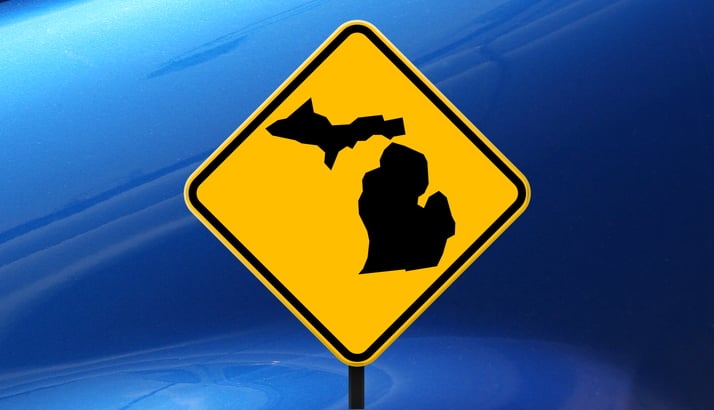
Effective July 2, 2020, the state of Michigan is set to see a significant change to its existing No-Fault law. Since 1973, Michigan drivers have been required to purchase No-Fault insurance; and the primary coverage afforded by this insurance is Personal Injury Protection (PIP). Intended to cover medical expenses and other accident related costs, PIP provided unlimited and potentially lifelong monetary benefits for drivers involved in auto accidents. Beginning July 2, Public Acts 21 and 22 will bring new choices to individuals and businesses with respects to the PIP benefit levels they wish to purchase. The intent of these options is to decrease the overall cost of insurance for insureds in the state of Michigan.
Under the Michigan No-Fault law prior to July 2, 2020, drivers involved in an auto accident would seek payments for medical expenses through their own insurance policies. As previously stated, expenses were paid as required and there was no cap on the total amount that could be paid out. These costs were split between the insured’s insurance company and the state of Michigan through the Michigan Catastrophic Claims Association (MCCA). In order to properly fund the MCCA, Michigan drivers were assessed an annual fee for each vehicle registered with the state in addition to paid insurance premiums. As of 2019, this amount was up to $220 per vehicle.
With the law change, consumers will now be able to select from different PIP benefit levels. The primary choices available are:
When selecting a PIP limit other than unlimited, customers will have the option to select Excess Attendant Care coverage, an optional coverage that was previously included under mandatory unlimited PIP coverage.
Insureds selecting a lower PIP limit will not be subject to the MCCA fee. For those customers selecting the unlimited PIP option, the updated MCCA fee per vehicle has been reduced to $100 in anticipation of lower claim costs to the MCCA.
Because they are no longer required to carry unlimited PIP coverage, drivers sustaining injuries may now seek payment for damages exceeding their PIP limits from other parties involved in the accidents. As a result, the state requires that insureds carry liability limits for bodily injury of at least $250,000 (one person) and $500,000 (two or more people) unless they elect lower limits by signing the necessary forms as described in the new law. The law change also increases the minimum legal limits for liability coverage to $50,000/$100,000. Consumers have the right to select the liability limits they wish to carry, and failure to select a limit will default to the required amounts of $250,000/$500,000. For commercial insureds, policies with a combined single liability limit of $510,000 or more already exceeds these new standards.
Overall, the changes to Michigan’s No-Fault law are intended to save consumers money by expanding the coverage options available to them. With the newly created PIP benefit levels, customers could see savings on both their insurance premiums and the savings from paying reduced or no MCCA fees. However, the changes will also increase liability exposures for drivers, and consideration should go into selecting liability limits. In the end, Public Acts 21 and 22 will accomplish short term savings for consumers, but the overall long-term implications and costs are unknown.

The Underwriting Consultant Group provides in-house technical underwriting support for Old Republic Risk Management. The group is responsible for setting and communicating underwriting guidelines for the company, working closely with the Product Development and Compliance Department. The Underwriting Consulting Group is based out of our corporate office in Brookfield, WI.